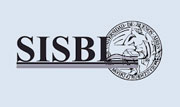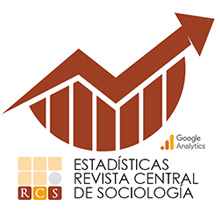La crisis actual del ser humano desde una perspectiva espiritual y científica
Resumen
El Pensamiento Social Cristiano (PSC) sigue siendo relevante. A través de su evolución como especie, el éxito de los humanos se ha hecho posible por culturas de solidaridad. Suministraron la cohesión y la creatividad necesarias para enfrentar los desafíos del medio ambiente físico. Entre las muchas culturas solidarias que ha habido y que hay, el PSC, en diversas versiones, contribuyó a la estructuración histórica del Sistema Mundial Europeo, siendo el PSC a la vez fuente de críticas y fuente de aliados. Este sistema se amplió para llegar a ser el Sistema Mundial Moderno de hoy. El PSC, junto con otras culturas solidarias, ofrece mucho a la reconstrucción social imprescindible para superar la actual crisis de los humanos.
Descargas
Métricas
Citas
Aquinas, S. T. (s.f.). Summa Theologica PART II-II “Secunda Secundae”. New York: BENZIGER BROTHERS.
Bhaskar, R. (1979). The Possibility of Naturalism. London Routledge.
Bhaskar, R. (February de 2018). Howard Richards On the intransitive objects of the social (or human) sciences. Journal of Critical Realism, 17(1-16).
Caritas. (2019). Economía y personas; Trabajar por lo que es justo. Informe de economìa solidaria .
Dewey, J. (1898). Evolution and ethics. the monist. vol 8.
Howard Richards; Joanna Swanger. (2006). The Dilemmas of Social Democracies. . Lanham MD Rowman and Littlefield .
Joanna Swanger; Hoeard Richards. (s.f.). The dilemmas of social democracies.
Kalecki, M. (1943). Political aspects of full employment. Political Quarterly, 3, 1-9.
Keyenes, J. M. (1936). General Theory of Employment Interest and Money. London: Macmillan.
Keynes, J. M. (Febrero de 1937). The General Theory of Employment. The Quarterly Journal of Economics, 51(2), 209-223.
Klaus Schwab; John J.DeGioia. (2010). Faith and the Global Agenda. Ginebra: Foro economico Mundial.
Kroos, K. S. (1971). Moderne Unternehmensführung im Maschinenbau Frankfurt am Main: Maschinenbau Verlag.
Luther King Jr, M. (1967). Where do we go from here? Chaos or Community? Boston: Beacon Press.
Luther, M. (2018). A Treatise on Christian Liberty: On the Freedom of a Christian. e-artnow.
Marx, K. (1964). Human Requirements and Division of Labour Under the Rule of Private Property. En Economic and Philosophical Manuscripts of 1844. New York: International Publishers.
Moahloli, T. (2018). Second Deliverable for the couse Ethics, Macroeconomics and organising. . 6-7. University of Cape Town.
Monares, A. (2005). Reforma e ilustración. los teologos que construyeron la modernidad. Santiago: Ayun.
Orléan, A. (2011). L´Empire de la Valeur: Refonder l´Économie. Paris: Sauil.
Piketty, T. (2013). Capital in the Twenty-First Century. Paris: Gallimard.
Piketty, T. (2020). Capital and Ideology. Cambridge: Harvard University Press.
Pistol, K. (2019). The code of capital: how the law creates wealth and inequality. Princeton : Princeton University Press.
Pistor, K. (2019). The Code of Capital¨: how the law creates wealth and inequality. Princeton: Princeton University Press.
Ricardo Escobar; Claudio Muñoz; José Rivera y Alfonso Swett. (2016). ¿y si nos ponemos de acuerdo? Santiago: Catalonia.
Santiago, A. d. (1971). Trabajo, Evangelio, Política y Socialismo. Nº 77. Santiago de Chile.
Schwab, F. d. (2018). Shaping the Future of the Future of the Fourth Industrial Revolution. . New York: Crown Publishing, pág. 8.
Smith, A. (2007). An inquiry into the nature and causes of the wealth of nations. Amsterdam: Metalibri.
The holy Bible. (1582). DOUAY-RHEIMS VERSION.
Winters, J. (1996). Power in Motion: Capital Mobility and the Indonesian State. Ithaca: Cornell University Press.
Wood, E. M. (2005). Empire of Capital. Verso.
Publicado
Cómo citar
Número
Sección
Licencia
Derechos de autor 2020 Howard Richards

Esta obra está bajo una licencia internacional Creative Commons Atribución 4.0.
















